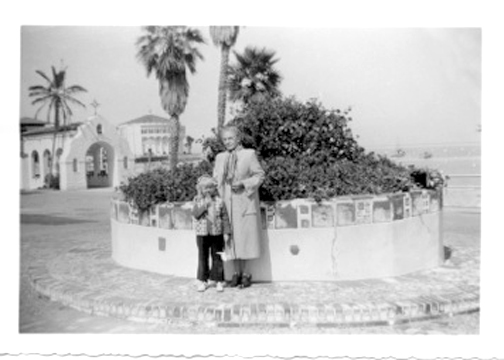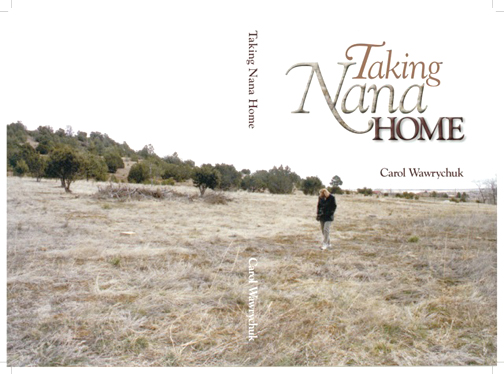
By Jason KUROSU
La Cañada resident Carol Wawrychuk explores family and faith in her latest book, “Taking Nana Home,” the story of the search for her late grandmother and the long journey of bringing her home to the family burial plot in Erie, Pennsylvania.
Wawrychuk’s grandmother, Mildred Johnson, died in 1970 while she was a patient at the New Mexico Behavioral Health Institute in Las Vegas, New Mexico. As far as Wawrychuk’s family knew, Johnson was cremated and buried at the hospital’s cemetery grounds.
“I didn’t like to think of her being there. I tried to shut that out of my head,” Wawrychuk said of her grandmother, who had lived with Wawrychuk and her parents during Wawrychuk’s childhood.
But in 2004, Wawrychuk said her grandmother came to her in a vision, an instance she “didn’t tell anyone about, at first. It seemed a little too bizarre.”
Nevertheless, the experience prompted Wawrychuk to visit the hospital with her husband Bill.

What they found was a “throwaway cemetery” where the closest things to headstones were metal stakes driven into the earth bearing patient numbers instead of names. A few crudely constructed cement slabs featured names etched in by hand, which Wawrychuk assumed was the work of fellow patients. Instead of lush green grass, they found a barren field surrounded by barbed wire and doubling as a horse pasture.
“When you think of a cemetery, you think of there being a groundskeeper, a map, etc. There were no markings, no monuments,” said Wawrychuk. “After seeing the graveyard, I realized this vision of taking her home was about more than just Nana.”
Thus began a long endeavor to locate her grandmother amongst the remains of 2,000 of the hospital’s other patients and bring the neglect to light. Once the story gained recognition with the local press, a state task force committee, of which Wawrychuk was a member, was formed to rehabilitate the facility, though funding was often in short supply.
But Wawrychuk found positivity in the struggle, as others with family members who were patients joined the cause, wanting to find their departed loved ones buried somewhere in the makeshift cemetery.
Furthermore, the journey, along with the eight-year process of writing the book, allowed Wawrychuk to explore and reexamine her family through “a new set of lenses.”
“Taking Nana Home” is Wawrychuk’s third book, one which Wawrychuk says she did not originally intend to sell.
“I knew I wanted it professionally done, but it was only after talking with friends that I came to realize that this is for a wider audience than just my friends and family.”
Wawrychuk’s previous books, “Miracles Happened There” and “Tsunami in the Desert,” also dealt with her personal experiences, particularly those concerning faith. Wawrychuk, a former schoolteacher, is currently a group leader at the Vocation & Formation Program at Fuller Seminary in Pasadena.
“This is definitely a God story. Too many things happened that were completely out of my control. Too many things kept dropping into my lap,” said Wawrychuk. “God uses us in different ways. He wants us to reach out to one another. I found that if you expose the elephants under the rug, that’s what connects people.”
Wawrychuk will be available at a book signing for “Taking Nana Home” on Thursday, April 30 at the Flintridge Bookstore in La Cañada, beginning at 7 p.m.
The majority of the book’s proceeds will go to the patient foundation of the New Mexico Behavioral Health Institute.

